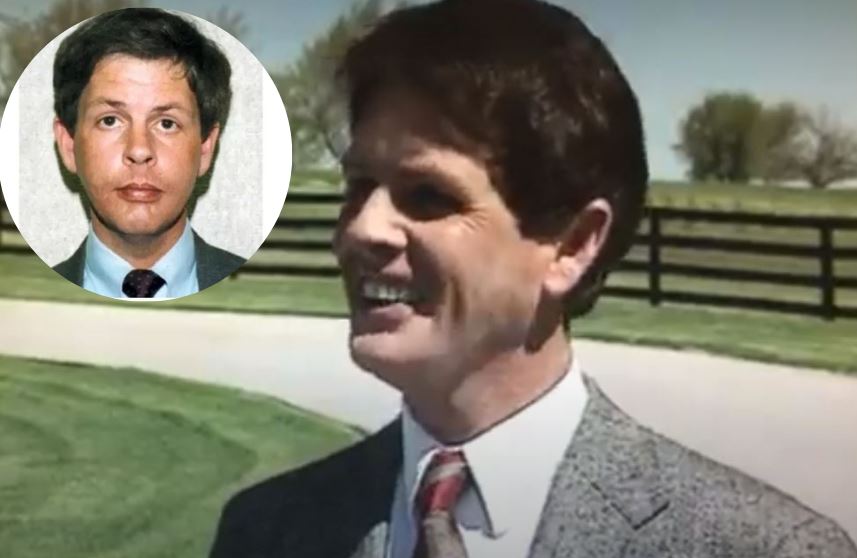In November 1971, Julie Saiter married Herb Baumeister, beginning what appeared to be an idyllic life. They were both youthful, politically engaged conservatives with similar goals and aspirations for success. They started a family, brought up three kids, and ran multiple Sav-A-Lot thrift stores throughout Indianapolis. From the outside, their expansive estate, successful business endeavors, and seemingly stable marriage epitomized suburban success.
But underneath that picture was a disturbing truth. Later, Julie would speak of an unintimate marriage, claiming that in more than 20 years of marriage, they had only had six instances of physical intimacy. Even on their wedding night, when he chose to read rather than consummate the marriage, she had never witnessed her husband fully naked. Their relationship was characterized by this remarkably unusual dynamic, which set the stage for years of emotional detachment.
Herb Baumeister Wife Julie – The Untold Life Behind the Mansion Walls
| Name | Juliana “Julie” Saiter Baumeister |
|---|---|
| Born | United States |
| Spouse | Herbert Richard “Herb” Baumeister (m. 1971) |
| Children | 3 |
| Profession | Businesswoman, co-owner of Sav-A-Lot thrift stores in Indianapolis |
| Known For | Marriage to suspected serial killer Herb Baumeister |
| Death | October 7, 2024 (cancer) |
She claimed that Herb’s disposition was frequently icy and uncompromising. He had the ability to cut off relationships suddenly and would withdraw into silence for long stretches of time; at one point, he didn’t speak to her for almost a year. With an air of unquestioned authority, he dictated family rhythms and kept strict control over the home. However, the Baumeisters were seen by their community as devoted business owners and parents who supported charitable causes and gave off an air of respectability and hard work.
That façade began to show by the early 1990s. Due to Herb’s increasingly unpredictable behavior, Julie had to spend a lot of time at her mother’s lake house with the kids. Investigators think that Herb enticed young men, many of whom came from Indianapolis’ gay bar scene, to their Fox Hollow Farm estate during these absences. Authorities claim that he strangled them there before burying their bodies in the property’s forested areas.
The family had become so close to the truth that it was exposed in a haunting event in 1994. A human skull was discovered by their young son behind the house. Julie agreed with Herb’s explanation that it came from a medical specimen that belonged to his late father, a physician. Herb threw the bones in the garbage and the issue was forgotten, a moment that would haunt her for years to come.
By 1995, both the business and the marriage were failing. In 1996, Julie filed for divorce. Herb gave police permission to search Fox Hollow Farm while she was away. Thousands of bone fragments were found, which was an astounding discovery that confirmed the property served as a burial ground for numerous victims.
The public’s perception of Julie’s role was quite polarized. She was perceived by some as a victim who was coerced into compliance by her domineering spouse. Others wondered how, with the odd patterns in their lives, she could have stayed in the dark. The complicated psychology of cohabitating with someone who is concealing unspeakable crimes was brought to light by comparisons to other well-known cases where spouses claimed ignorance, such as Carole Ann Boone with Ted Bundy.
Julie insisted that she was unaware of the killings until the course of the investigation. Although she didn’t often speak in public, she described the devastating experience of discovering her husband’s true identity in an open 1996 interview. “How he could have loved us and done this is our biggest question now,” she said, expressing the mixed feelings of betrayal, disbelief, and grief.
She died of cancer in October 2024 after leading a quiet life in her last years. Her tale serves as a sobering reminder of how a well-constructed façade can hide unfathomable horrors. It also serves as a case study for the troubling question of how much a spouse can really know and what they might be able to ignore out of fear, love, or denial.
Julie Baumeister’s life is tragic and puzzling in the history of true crime; it tells the story of a woman whose house served as a backdrop for unspeakable deeds, but who claimed not to have seen the entire script until the last act took place.

